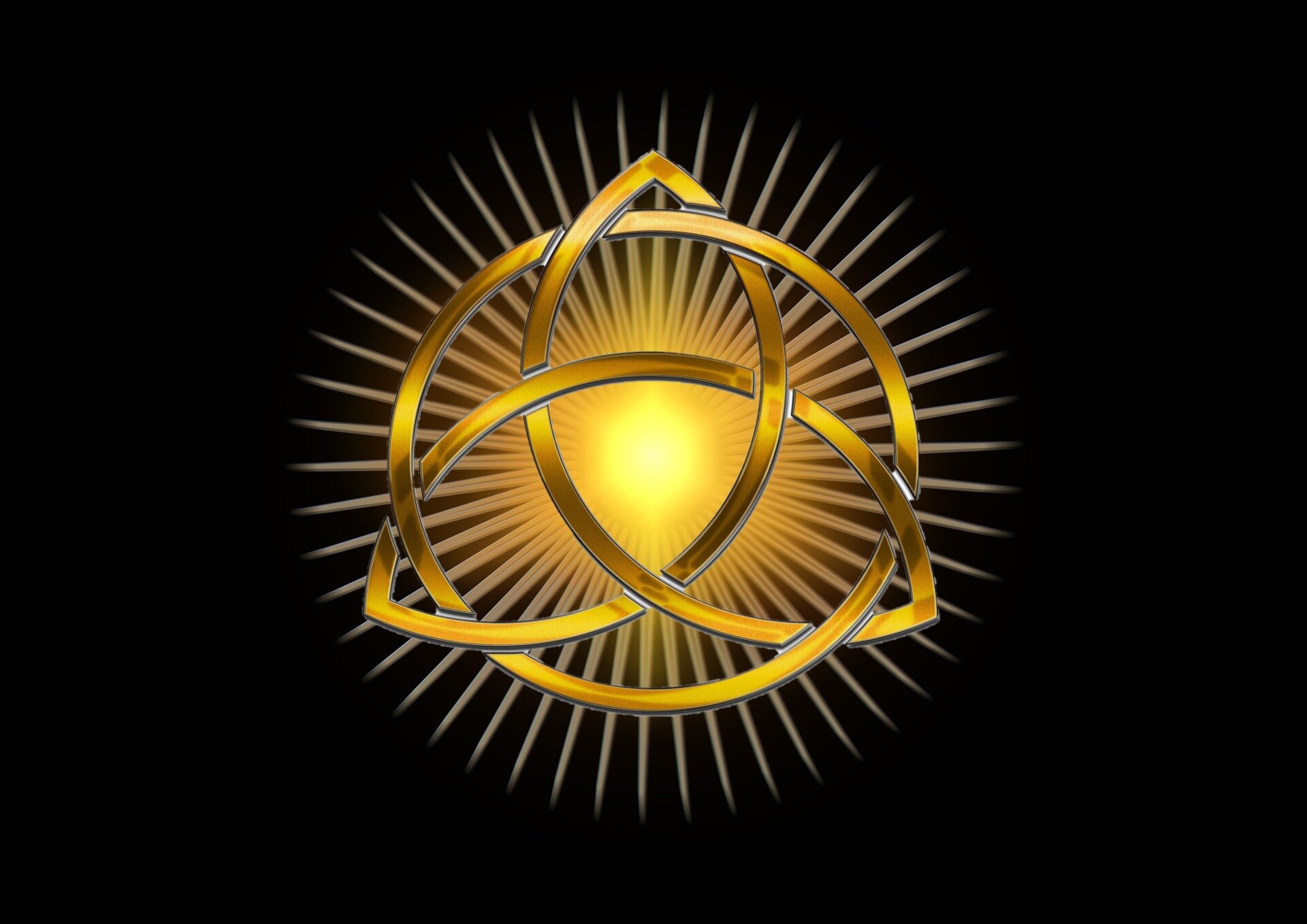On the Trinity: What is the Trinity?
In order to defend the doctrine of the Trinity, one must first know what the Trinity is, and what it is not. I add “and what it is not,” because often skeptics will try to attack this doctrine by setting up a “strawman” (A distorted version of an opponent’s position that is attacked rather than the real thing). For example, a skeptic might say, “I thought your Bible says that there’s only one God. You believe in the Trinity, so you believe in three gods!” The man of God need only smile and respond, “I’m afraid you’re misinformed. That isn’t the doctrine of the Trinity at all.”
For this article, let’s focus on the doctrine itself. Most statements of faith that include the Trinity word it something like this: “We believe that God is eternally existent in three distinct persons: God the Father, God the Son, and God the Holy Spirit.” God is Three in personhood, but One in being. It may sound a little confusing, but as you read through scripture, this truth will become quite apparent.
Here is a diagram that is useful to help understand the doctrine:
source: https://en.wikipedia.org/wiki/File:Shield-Trinity-Scutum-Fidei-English.svg
Now let’s build a scriptural case for the Trinity, because the Word of God is what we base our doctrine on.
1) There is only one God: This must be plainly understood, as this is perhaps the most common attack the doctrine faces. Skeptics will try to twist the doctrine in an attempt to accuse adherents of believing in polytheism (the belief in the existence of multiple gods). However, scripture tells us repeatedly that only one God truly exists. (1 Chronicles 17:20, 1 Kings 8:60, Isaiah 43:10, 44:6, 46:9, 1 Corinthians 8:4-6, 1 Timothy 2:5)
2) There are three distinct Persons in the Godhead: Father, Son, and Holy Spirit.
a) The Father: The Father is God(John6:27; 1 Peter1:2; Romans 1:7). I won’t belabor this point, because it is not generally debated.
b) The Son: The Son, who became incarnate in the person of Jesus of Nazareth, is God (John 1:1, 1:14; Romans 9:5; 1 John 5:20). This is typically the point that receives the most opposition. However, the scriptures provided, as well as too many others to include in this short article, clearly demand the acceptance that Jesus is God.
c) The Holy Spirit: The Holy Spirit is God (Matthew28:19; 1 Corinthians3:16). The most common way skeptics will attack this truth is by saying that the Holy Spirit is an impersonal force. However, the idea of an impersonal force is incompatible with what scripture tells us of the Holy Spirit. For example, you cannot grieve an impersonal force, yet we are able to grieve the Holy Spirit (Ephesians 4:30). Also, an impersonal force does not speak, as the Holy Spirit does to Philip (Acts 8:29), and also to the believers at Antioch (Acts 13:2).
3) The Father, Son, and Spirit are distinct persons: Many will say of the passages in the gospels where Jesus prays to the Father, “Is God talking praying to himself?” or, “Is God praying to God?” but this is yet another strawman of the doctrine of the Trinity. What statements like these imply is that all three Persons are only one person, or in other words, God simply “wearing different hats.” This is a false doctrine called “modalism,” which can be illustrated by comparing God to a family man, who in one part of the day is a husband, and in another, he is a father, and in another, he is a son, however, he is the exact same person throughout. Once again, this is not the doctrine of the Trinity. The members of the Trinity can converse amongst each other because while they are each God, they are distinct persons.
Much more could be said simply on the doctrine of the Trinity, and indeed entire books have been written on the subject, but this article serves as an introduction to the doctrine to help you spot strawmen when skeptics attempt to attack it. Also, it is my hope that this article will stir up curiosity and passion about the very essence of God and inspire the reader to do further research on their own. I’ve included, as always, a resource I recommend if you wish to do so.
Recommended Resource:
Book: The Forgotten Trinity by Dr. James White


